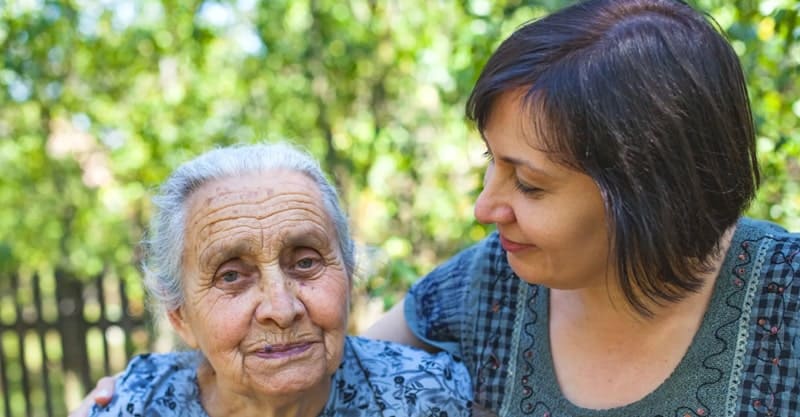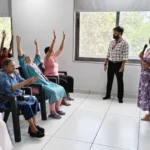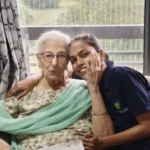While caring for parents is natural, being around them forever isn’t. There’s a lengthy learning curve for any person entrusted with this important task to take care of your parents in their old age. Don’t worry about it if you’re not sure how to handle the numerous requirements of your elderly parents. This checklist will assist you in protecting your parents and maximizing your knowledge about Home Care Nursing Services.
Health and Medical Support
The caregiving process begins by knowing your parents’ health and medical requirements. Assist your parents in completing the following tasks:
- Complete all paperwork in each medical office so that you can review and discuss the medical records of your parents.
- Make sure you attend health appointments along with parents specifically for diagnostic tests.
- Help your parents take care of their prescriptions by arranging for monthly refills. Consult their doctor regarding autofill options. If you or your parents have difficulty managing their medication or worry about misuse, an automated pill dispenser might be a solution.
Legal Issues
The process of addressing legal issues when your parents are healthy and in good health is one of the most important ways to take care of them. Consider the following options:
- Consult with an attorney who is specialized in elder law. They will be able to address issues such as whether or not you should apply for guardianship of your parents, the best way to manage your parents’ finances, and what strategies can best safeguard your parents’ assets.
- Aid your parents in drafting crucial documents for legal purposes like wills and an advance directive. A broad power of attorney can allow you to make decisions if your parents ever become unable to make the necessary decisions.
- You can become an authorized user of your parents’ accounts if they’re not capable of managing their finances. This lets you pay their bills through their accounts.
Safety
Aging can bring new dangers to safety. People living with Osteoporosis have a higher risk of falling, while those who have dementia might wander off or forget to shut off the oven. If your parents wish to stay at home the longest possible and want to stay safe, these strategies will help them stay safe.
- Consult your parents’ physicians about the particular risk they are exposed to.
- Take a look at meeting with a senior care coordinator to evaluate the security at your parent’s house and develop a strategy.
- Take care of obvious security issues. Security cameras or alarms could alert you of wandering or trespassing, and a GPS device worn in a necklace or bracelet can assist you in finding parents who have disappeared.
Understanding Your Parents’ Wishes
Your parents’ talents can change and shift but what they’re about at the core is not. Therefore, it is crucial to speak to them about your values as soon as possible before degenerative diseases, and other ailments cause them to be unable to communicate their desires.
Many seniors hesitate to talk about their plans and are less willing to discuss the possibility of needing supportive care. Be sure to have this conversation since putting it off can leave you wondering about what your parents’ wishes are. Instead of trying to squeeze everything into one discussion, you should engage in a regular discussion about the wishes of your parents. Consider asking questions such as:
- If you’re not capable of taking care of yourself or taking care of the things you used to enjoy What is the most important thing to you?
- What are your biggest fears regarding getting older?
- Have you considered what you’d like to be remembered?
- What type of medical attention would you like if you have a life-threatening condition?
- If you are suffering from dementia, do you expect doctors to do everything they can to protect your life in the event you begin to develop another illness? Or do you prefer to concentrate on measures to ease your suffering?
Caregiving Plan
The planning of your parents’ needs for caregiving is a continual task and not something you complete once and do nothing about. Someone who was able to reside independently might require more assistance. Therefore, work with your family members to maintain a regular caregiver conversation.
Strategies to help include:
- Visit your parents’ physicians regularly to discuss any changes to their medical needs.
- Consider various options including in-home care private care facilities, or senior living.
- Take a look at the values of your parents. What is important to them? How do you honor it?
The responsibility of caring for your loved ones can be a burden as well as a blessing all simultaneously. If you’re eager to get back to your role as a parent and you’re no longer able to take care of the people you love, it’s the right time to consider an elderly living community. A senior living facility that is right for you can handle a variety of caregiving issues for you. At Papayacare we have been serving seniors for over 10 years. We ensure that seniors are safe and listen to their concerns and offer a variety of activities, and constantly help caregivers.
















